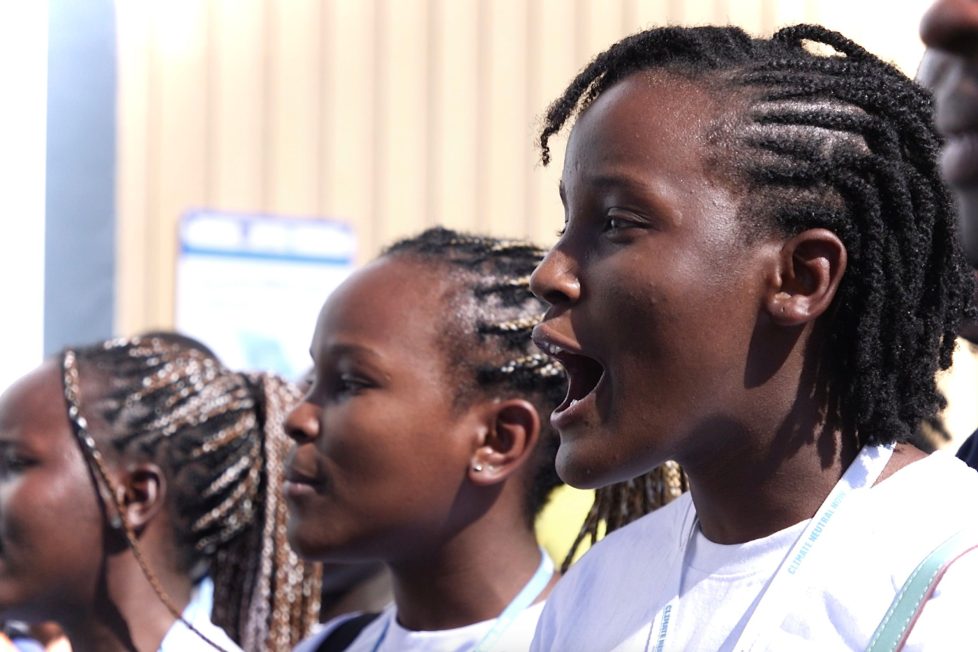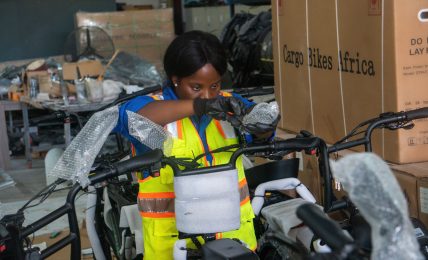Keep Oil in the Ground Where it Belongs: Young Activists Protest Against New Fossil Fuel Rush
They're young, fierce, and not afraid to tackle their governments, global leaders and corporate polluters head-on.

They're young, fierce, and not afraid to tackle their governments, global leaders and corporate polluters head-on.

Kate Okorie, bird story agency
The hot afternoon sun in Sharm el-Sheikh, Egypt, is no deterrent to the activists protesting against fossil fuels.
A new chant follows each speech; “Stop oil!” they cry, or “Keep it in the ground!” – a demand for countries to stop any new oil projects.
They may come from different parts of the continent, but it’s clear that young African activists are united in demanding climate justice.
Gabriel Klaasen is from South Africa. This year, severe floods triggered by heavy rainfall displaced more than 40 000 people in his country.
He is firm: “With the climate crisis wiping away entire communities we can no longer justify using fossil fuels.”
Extreme weather events have also ravaged other parts of Africa, from wildfires in the north to drought in the east and floods in the west.
Fossil fuel exploration releases tons of carbon dioxide and greenhouse gases into the atmosphere; these trap excess heat and cause global warming, which drives the disasters unfolding across the continent and elsewhere in the world.
Amid these recurring disasters, leaders in developed countries have continued to finance new oil projects. In 2021, they invested almost $700 billion in fossil fuel projects – a 17% increase from the previous year.
Yet they have been remiss in meeting their commitments to supporting climate action in developing countries.
In 2009, developed countries agreed to mobilise $100 billion each year to help poorer countries tackle the impact of climate change. They have consistently failed to reach this target every year.
Young activists are up against giant corporations, their governments and enormous amounts of money.
French-owned TotalEnergies is among a handful of European-based shareholders behind the $5 billion Ugandan-Tanzanian East Africa Crude Oil Pipeline, which will generate 34 million metric tons of greenhouse gas yearly when it is fully operational.
Ugandan president Yoweri Museveni once stood in solidarity with climate activists. But he’s made a U-turn, insisting that the EACOP will benefit the country’s economy and reduce levels of energy poverty.
Ugandan environmental activist Vanessa Nakate said: “Indeed, energy poverty is still hurting millions of people in Africa and across the global south, but the promise by big oil and gas companies to lift Africans out of energy poverty is a lie. It’s always been a lie.”
Available data shows that most oil-producing countries in Africa, including Nigeria, Libya and Angola, export more than 90% of their oil to countries across Asia and Europe.
“The oil and gas that fossil fuel companies want to develop in Africa will not be for Africans,” Nakate said.
Even though some oil projects like the EACOP are still ongoing, the uproar from activists has gotten some attention.
An increasing number of developed countries — key investors in Africa’s oil sector — are gradually pulling funds from fossil fuel projects and re-directing them to renewable energy projects.
Within the last decade, investment in Africa’s renewable energy sector grew from $0.5 billion to $5 billion, with solar and wind projects leading the way.
Africa has a rich store of renewable energy resources which can generate enough energy to serve its future demand.
As the world moves away from fossil fuels, Tanzanian activist Rehema Peter believes it is time for African leaders to face reality and push for investments towards the continent’s abundant renewable energy sources, which are both climate-friendly and cost-competitive.
One of her Ugandan counterparts, Edwin Namakanga, concurred:
“Transitioning to renewable energy will create a sustainable future for us.”
This story was republished with the permission of bird, a story agency under Africa No Filter.



